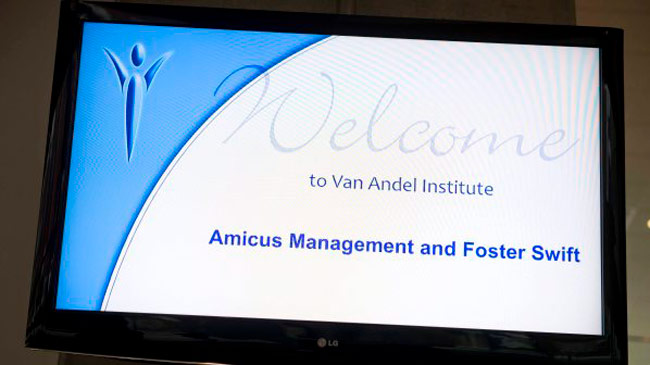
Comfort Suites Lakeside Hotel on Houghton Lake to complete $250,000 in upgrades on water park and spa area in time for Memorial Day
October 19, 2020
Legal Update: Liquidating Commercial Real Estate Without Triggering Right of Redemption
October 19, 2020The road of receiverships in Michigan can take some surprising twists and turns, so it’s always handy for travelers in this specialized field of Michigan law to have a guide at their side while making the trip.
, a 206-page book published recently by The Institute of Continuing Legal Education in Ann Arbor, offers extensive practical advice for anyone who needs to navigate this constantly changing body of Michigan law. Written by Patrick E. Mears, , and Daniel J. Yeomans, authors who have decades of experience in the field, the book is designed to assist lawyers, bankers, mortgage lenders, accounting firms, and financial institutions involved in receivership proceedings.
The book weighs the pros and cons of appointing a receiver, estimates the potential costs, and determines the current state of Michigan law on what a receiver can and cannot do, including the ability to sell assets free and clear of liens and other interests. The material includes an analysis of Michigan’s new emergency manager law for local governments and school districts.
Receiverships in Michigancontains easy-to-access forms and checklists covering beginning a receivership action, a complaint and motion for the appointment of a receiver, the Order Appointing Receiver (OAR), an amendment to the OAR granting receiver the power to sell or lease property, and motions and orders to approve the final plan of distribution and to close the case.
The online version of the book is fully searchable and is continually updated, with forms that can be downloaded, an index helps to locate subjects quickly, and links to Michigan case law, statutes, and court rules. The book is one of the latest products of the Ann Arbor-based Institute that was created in 1959 at the request of the Board of Commissioners of the State Bar of Michigan to meet the continuing education needs of the legal community.
“Receivership is an increasingly popular alternative to bankruptcy,” said Yeomans, president of Amicus Management Inc. in Grand Rapids who has handled more than 700 cases as a court-appointed receiver, business manager, and advisor. “But many bankers and accounting firms aren’t familiar with court-appointed receivership — much less be involved in one. Kudos to the Institute for investing resources into publishing a thorough resource on the subject that keeps up with changes in the law.”
“Receivers are appointed to take possession of, preserve and dispose of property,” said Mears, a recognized expert in receiverships who practices restructuring, bankruptcy, real estate, and insolvency law with his colleague Gregg at (Chicago, Illinois, and Grand Rapids). “The bulk of Michigan law on this is judge-made and some of it is confusing and even contradictory.”
“In writing this book, we sought to clearly explain the applicable law to help attorneys, other professionals, and creditors avoid pitfalls in requesting the appointment of receivers and delineating their powers and duties,” Mears said.
For more information on Receiverships in Michigan, please visit www.icle.org/books/RIM or call 877-229-4350.
To contact Daniel J. Yeomans, President of Amicus Management, please click on this link: https://www.amicusmanagement.com/meet-our-team/
Press Contact:
Cindy Huss
Director of Publications, ICLE
1020 Greene Street
Ann Arbor, Michigan 48109-1444
direct line: (734) 647-0681


